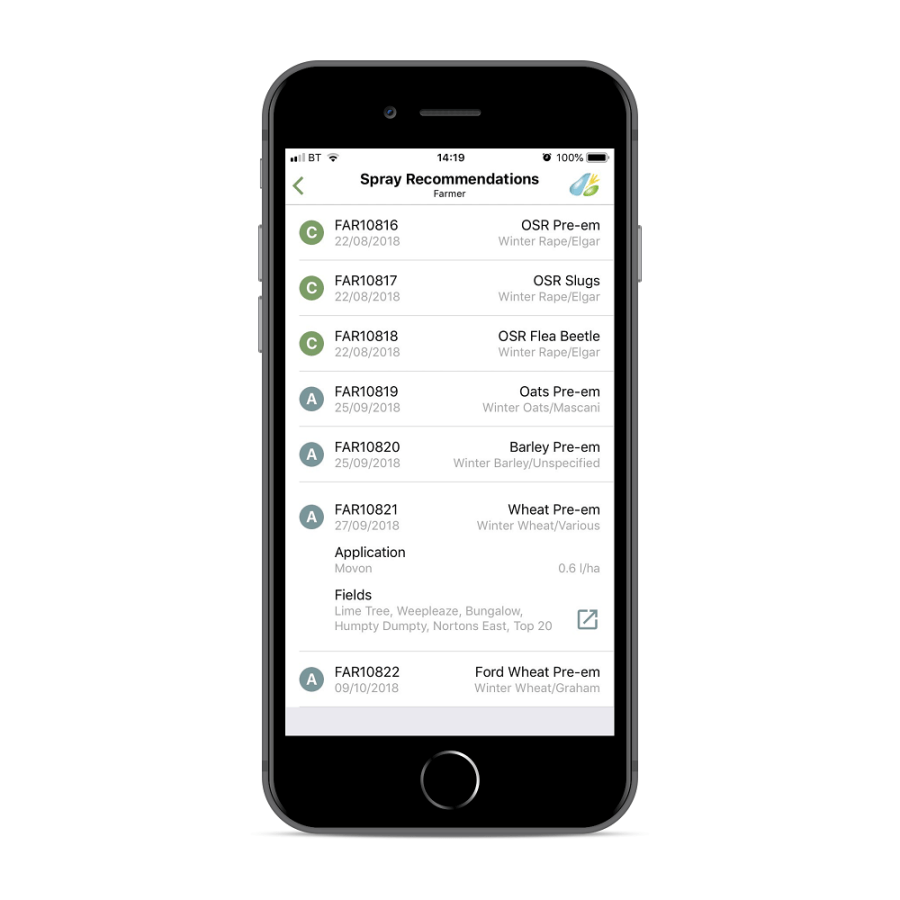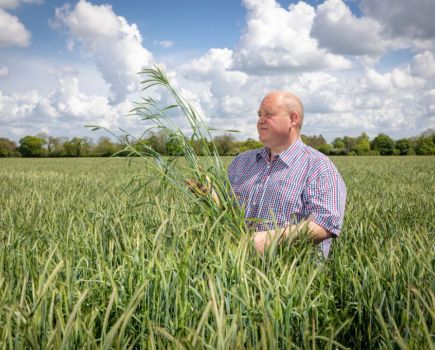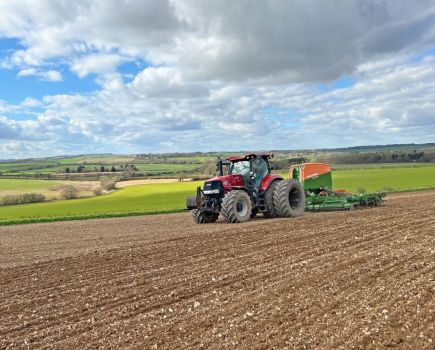Shows are awash with new product launches and the ever evolving tech market can leave people overwhelmed with choice. CPM takes a look at the newest tech.
Cereals is dedicated to providing unique content that addresses the changing needs of the arable farming community.
By Ruth Wills
We’re heading into show season, but what can we expect from the big names in tech? As the Cereals event enters a year of big changes itself, the theme is especially apt – preparing for change – and many businesses are using the show to launch exciting new products or services to help producers get ready for the years ahead.
“Cereals is dedicated to providing unique content that addresses the changing needs of the arable farming community,” says Alli McEntyre Gaharan, portfolio director at Cereals. The Innovation and Technology Theatre will profile the latest innovations, product launches and technology. This interactive area will be a hub where the most forward-thinking farmers, suppliers and universities can chat about what’s new – and coming – to the sector.
However, the learning opportunities will not be limited to the theatres but extend to every part of the event, from innovative exhibitors to crop plots and hands-on demonstration areas. “We hope that our commitment to serving the industry shows in the expanded content available at Cereals 2019.”
So what technology can visitors expect to see at the event?
Remote grain store control
In a world where everything from your heating to your kettle can be controlled by your phone, it seems no surprise that now you can manage your grain store from your phone too. Launched this year is the Robydome WTM-1 which offers smart grain store monitoring and control as well as remote management of temperature and ventilation within flat floor stores – wherever in the world you may be.
The WTM-1 is a smart box installed into the store which is linked to temperature probes and ventilation sensors. It can autonomously regulate fans which are linked to ambient humidity and temperature sensors to keep the crop in ideal conditions.
One smart box can manage up to eight stores, with up to 32 sensors in each store. All of the information about the store’s ambient conditions is available in real time from a web browser. Because of its compact design, any issues which growers might have experienced with dust and humidity on a static computer in the store are eliminated. Historical records and data are held on the farm’s own box rather than a cloud system, which eradicates costly monthly data storage.
Smart Rotations
Nutrients becoming chemically bound in soils or leaching away is a headache that most growers will be familiar with. Could highly biologically active soil be the answer? Smart Rotations thinks so.
Having an abundance of beneficial soil microbes like symbiotic fungi and bacteria is the key to building highly functioning soils and Smart Rotations offers a range of products and guidelines to help growers build and enhance their soil biology using rotation systems.
Smart Rotations’ biological inoculants are designed to restore a microbial balance in arable soils, and have been extensively evaluated through laboratory and field trials. The Smart Rotations products consist of two groups of microbes; Arbuscular Mycorrhizal Fungi (AMF) and a subset of bacteria called Plant Growth Promoting Rhizobacteria (PGPR).
Mycorrhizal fungi are a group of fungi which grow into the root of the crop and access large areas of soil around the root, increasing the root surface area by up to 700 times. Simply, plants colonised by AMF are healthier and significantly more efficient at collecting water and nutrients from the soil.
PGPR can fix atmospheric nitrogen and unlock soil-bound phosphorus. Additionally, they support a robust plant immune system for healthier crops and produce phytohormones like auxins and cytokinins – aiding plant growth and development.
John Deere
Visitors will be able to see John Deere’s latest offering in security. It has designed a pin code locking system to help reduce the theft of GreenStar in-cab displays and StarFire satellite receivers –so that the components are impossible to use if stolen.
The popular plug and play design makes the displays and GPS receivers more susceptible to theft and until now they could only be locked and protected mechanically. This led John Deere to introduce the pin code lock – similar to one used on smartphones – for both components.
Hutchinsons
Hutchinsons has two launches planned for the show; the first being Terramap. This is a soil scanning and mapping service which it says is set to revolutionise how soil sampling is carried out on UK farms.
The second is a unique farm-scale project which launched this spring – Helix. It explores how technologies can be successfully linked with knowledge to improve agronomic advice to farm businesses. Work on areas like climate and pest prediction, nutrition technology, variety trait work and environmental sustainability has begun.
Visitors can also find out the results from last autumn’s Omnia trials comparing variably drilled wheat with farm standard rates.
Bayer
Since Bayer’s acquisition of Monsanto and its Dekalb programme, its focus will be on oilseed rape, with four new varieties to rival farmer favourites DK Extrovert and DK Exalte. These are: DK Exstar, newly-recommended DK Expansion, DK Exsteel, and DK Extremus, currently in National List testing. Also on display will be up-and-coming Clearfield varieties; DK Impressario CL, clubroot resistant DK Platinium and new HOLL variety, V353OL.
Visitors can also see demonstrations of Bayer’s new fungicidal OSR seed treatment, which is currently sold in Ireland under Scenic Gold (fluopicolide + fluoxastrobin) and is awaiting registration in the UK. Bayer claims it has shown increased root growth in trials, contributing to quicker crop emergence than untreated seed and potentially providing valuable support to growers keen to combat the cabbage stem flea beetle threat.
In addition, the popular blackgrass weed screen demonstration will be back this year and will feature blackgrass, ryegrass and bromes with different herbicide programmes applied. These include programmes with two development pre-emergence herbicides, Liberator (flufenacet + diflufenican) and Monolith (mesosulfuron + propoxycarbazone).
Over in the wheat trench, visitors can see disease control from a different angle. By comparing untreated and treated plots with Aviator Xpro (bixafen + prothioconazole) and Ascra Xpro (bixafen + fluopyram + prothiconazole), growers will easily see how well each programme is performing.
Pear Agri
Pear Agri will be demonstrating its new cloud-based crop recording software for the first time. Developed from scratch it will offer a cost effective, easy to use system for everyone involved on the farm. The three programmes are available for farmers, agronomists and contractors, and because they are cloud-based, all those with permission can access the latest information as it is updated.
When the agronomist creates a spray recommendation, the farmer and spray operator will be notified of a new job to complete. Using the app in the field, the operator can then record the required details against the job without having to re-enter any of the recommendation data.
Available via a web version, mobile and tablet app, the programme also offers machinery costings to calculate operation expenditure. In addition, it provides financial and crop assurance reports – including valuations and gross margins. Users will be able to access the LIAISON pesticide database to ensure compliance, and a fertiliser planner module based on the latest RB209 guide.




